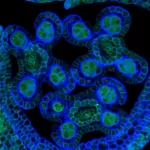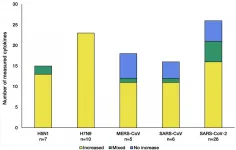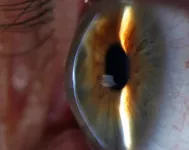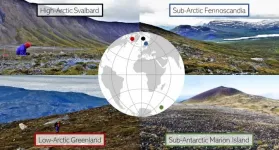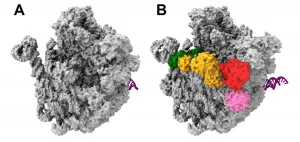New research will enhance corona safety during cruises
Managing passenger flows during pandemics - reducing the risk of contracting infectious diseases during seaborne transportation
2021-03-01
(Press-News.org) New research will enhance corona safety during cruises and help cruise lines to again attract passengers onboard
Researchers within Cell Biology and Industrial Management at Åbo Akademi University have developed models aimed at ensuring corona safety during cruises.
The coronavirus pandemic stopped the cruise industry more or less completely. Major international cruise lines, such as Royal Caribbean Group and Carnival Corporation, largely suspended their cruises during 2020, which resulted in practically zero turnover and losses amounting to billions.
Upon assignment by Business Finland, an interdisciplinary research team has been working to find solutions for managing the current crisis as well as possible future pandemics. Within the Healthy Travel project, the researchers have developed models to describe work and passenger flows on vessels of different sizes as well as the need for testing in order to cost-effectively minimise the risk of embarkation of disease carriers.
- We have identified situations where the risk of spreading the virus is particularly high and developed processes and procedures to minimise the risks. Because the risk of infection spread is the largest when lots of people are gathered in confined spaces, we have primarily focused on embarkation and shared premises onboard, explains Magnus Hellström, Associate Professor in Industrial Management at Åbo Akademi University.
Moreover, the researchers have outlined how the different security levels can be used to prevent the virus from spreading onboard, depending on the infection situation. During a pandemic, the passenger numbers are limited and more attention is paid to cleaning the surfaces. Also, the need for queuing and times spent in shared premises can be reduced by, for example, offering electronic restaurant bookings. The risk of spreading the virus can further be mitigated by placing hand sanitizers and mask recommendations at entrances and by acquiring coronavirus test equipment for use during the cruise.
- Last spring in Japan, a virus outbreak originating from a single passenger onboard the Diamond Princess resulted in about 700 persons falling ill. The case showed how important it is to invest in relatively simple screening procedures for embarkation and safety routines during the cruise. Many of the measures implemented by cruise lines already create the conditions for much safer cruises than people may think, says Erik Niemelä, Project Researcher in Cell Biology at Åbo Akademi University.
INFORMATION:
About the study:
Erik Niemelä, Jonas Spohr, Magnus Hellström, Johnny Långstedt, Anastasia Tsvetkova, Joakim Sjöblom, Fuad Khan, John E. Eriksson, Kim Wikström. Managing passenger flows during pandemics - reducing the risk of contracting infectious diseases during seaborne transportation. Manuscript under revision in the International Journal of Travel Medicine: 29.01.2021.
More information:
Magnus Hellström,
Associate Professor (tenure track). Industrial Management, Åbo Akademi University
Tel. +358 40 737 9980
magnus.hellstrom@abo.fi
Erik Niemelä,
Project Researcher, Cell Biology, Åbo Akademi University
Tel. + 358 40 707 4400
erik.niemela@abo.fi
Jonas Spohr,
University Lecturer, Industrial Management, Åbo Akademi
Tel. +358 50 354 4466
jonas.spohr@abo.fi
ELSE PRESS RELEASES FROM THIS DATE:
2021-03-01
A lot of us recycle our old textiles, but few of us know that they are very difficult to re-use, and often end up in landfills anyway. Now, researchers at Lund University in Sweden have developed a method that converts cotton into sugar, that in turn can be turned into spandex, nylon or ethanol.
WATCH: New method transforms old cotton into glucose
https://www.youtube.com/watch?v=B1V--prLs08
Every year, an estimated 25 million tonnes of cotton textiles are discarded around the world. In total, 100 million tonnes of textiles are thrown out. In Sweden, most of the material goes straight into an incinerator and becomes district heating. In other places, it is even worse, as clothes usually end up in landfills.
"Considering that cotton is a renewable ...
2021-03-01
TAMPA, Fla. - Genetic alterations of the KRAS gene are some of the most common mutations in lung cancer patients, but unfortunately these patients have few effective treatment options. Drugs that target the G12C mutation in KRAS have shown some activity in lung cancer; however, alternative signaling pathways are often activated that bypass the KRAS inhibitor, resulting in drug resistance. In a new article published in Clinical Cancer Research, Moffitt Cancer Center researchers show that various subtypes of lung cancer cells activate different signaling pathways in response to KRASG12C inhibitor treatment. These results may help identify potential combination therapy approaches and guide ...
2021-03-01
Atmospheric carbon dioxide (CO2) is a major driver of global warming, but this gas could also serve as a valuable resource. Researchers at KAUST have developed an efficient catalyst that uses light energy to convert CO2 and hydrogen into methane (CH4). This counteracts the release of CO2 when methane is burned as a fuel.
Many researchers worldwide are exploring ways to convert CO2 into useful carbon-based chemicals, but their efforts have been limited by low efficiencies that restrict the potential for large-scale application.
"Our approach is based on the synergistic combination of light and heat, known as the photothermal effect," says postdoc Diego Mateo. He explains that the heat is generated by the interaction of light with the catalyst, ...
2021-03-01
Spikes in temperature can affect a plant's fertility, resulting in a reduction of yield and economic loss
How plants can protect themselves from stress has been studied by a consortium led by the University of Warwick
Two argonaute-like proteins protect the plant's fertility, understanding these proteins is critical to safeguarding crop production
As Temperatures rise due to global warming the need to protect plants from stressful conditions has increased, as stress can cause a loss in yield and cause further impact economically. A consortium led by the University of Warwick have successfully identified ...
2021-03-01
Respiratory viruses such as SARS-CoV-2 (causing COVID-19) can often catalyse an overactive immune response that leads to a life-threatening cycle, known as a cytokine storm. Analysing cytokine responses from patients infected with SARS-CoV-2 and similar common respiratory viruses has unearthed glaringly important differences in how SARS-CoV-2 affects cytokines compared to other common respiratory viruses.
The comprehensive data resource aims to help specialists identify better treatments and diagnosis of underlying causes that can cause the deadly cytokine storm.
Scientists at the ...
2021-03-01
In order to avoid the occurrence of such effects, the Federal Institute for Health Protection of Consumers and Veterinary Medicine (BgVV) recommended guidance values for maximum THC levels in various food groups in 2000. The guidance value for beverages was given as 0.005 mg/kg, for edible oils with 5 mg/kg and for all other foods with 0.150 mg/kg. In 2018, the BfR came to the conclusion that these values no longer correspond to current scientific knowledge.
Instead, the BfR recommends that the toxicological assessment of hemp-containing foods be carried out on the basis of the acute reference dose (ARfD) of 1 microgram Δ-THC/kg body-weight derived by the European Food Safety Authority (EFSA) in 2015. The ARfD specifies the estimated maximum quantity ...
2021-03-01
DNA nanotechnology - the research field using DNA molecules as building material - has developed rapidly during recent years and enabled the construction of increasingly complex nanostructures. DNA nanostructures, such as DNA origami, serve as an excellent foundation for nanocarrier-based drug delivery applications, and examples of their use in medical treatments have already been demonstrated. Although the stability of such DNA nanostructures under physiological conditions can be improved, little is known about their digestion by endonucleases, which, found everywhere in our blood and tissues, are responsible for destroying foreign DNA in our bodies.
To tackle this emerging question, a ...
2021-03-01
Scientists have taken a significant step forward in their search for the origin of a progressive eye condition which causes sight loss and can lead to corneal transplant.
A new study into keratoconus by an international team of researchers, including a University of Leeds group led by Chris Inglehearn, Professor of Molecular Ophthalmology in the School of Medicine, has for the first time detected DNA variations which could provide clues as to how the disease develops.
Keratoconus causes the cornea, which is?the clear outer layer?at the front of the eye, to thin and bulge outwards into a cone shape over time, resulting in blurred vision and sometimes blindness. It usually emerges in young adulthood, often with lifelong ...
2021-03-01
Researchers are in the search for generalisable rules and patterns in nature. Biogeographer Julia Kemppinen together with her colleagues tested if plant functional traits show similar patterns along microclimatic gradients across far-apart regions from the high-Arctic Svalbard to the sub-Antarctic Marion Island. Kemppinen and her colleagues found surprisingly identical patterns.
It is widely known that global vegetation patterns and plant properties follow major differences in climate. Yet, it has remained a mystery how well the same rules can be applied at very local scales. Are responses to the environment similar in plant communities ...
2021-03-01
Ribosome formation is viewed as a promising potential target for new antibacterial agents. Researchers from Charité - Universitätsmedizin Berlin have gained new insights into this multifaceted process. The formation of ribosomal components involves multiple helper proteins which, much like instruments in an orchestra, interact in a coordinated way. One of these helper proteins - protein ObgE - acts as the conductor, guiding the entire process. The research, which produced the first-ever image-based reconstruction of this process, has been published in Molecular Cell*.
Ribosomes are an essential component of all living cells. Frequently referred to as 'molecular protein factories', they translate genetic information into chains of linked-up ...
LAST 30 PRESS RELEASES:
[Press-News.org] New research will enhance corona safety during cruises
Managing passenger flows during pandemics - reducing the risk of contracting infectious diseases during seaborne transportation
